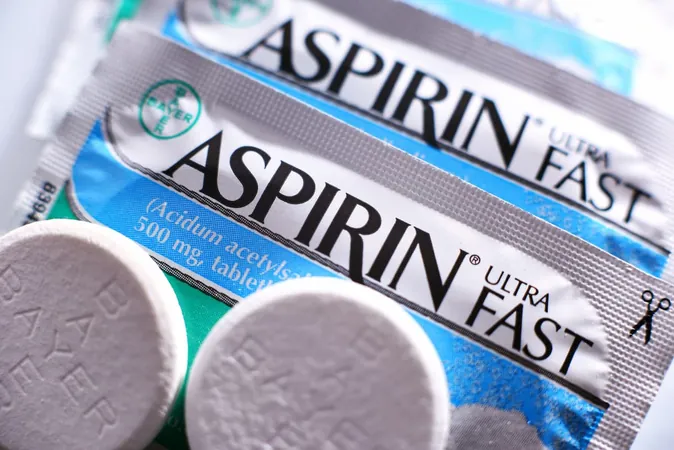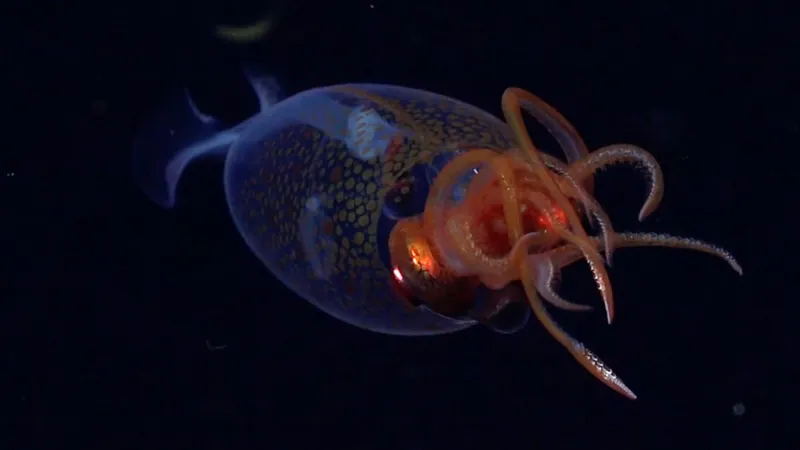
Breaking News: Aspirin Fails to Improve Outcomes for Kids with Kawasaki Disease!
2025-04-17
Author: John Tan
New Study Shakes Up Treatment Protocol for Kawasaki Disease
In groundbreaking revelations from a recent clinical trial, researchers have revealed that adding high-dose aspirin to the treatment regimen of children suffering from Kawasaki disease (KD) offers no significant advantages in reducing coronary artery lesions (CALs). This eye-opening finding, published in the renowned Journal of the American Medical Association, challenges existing treatment norms for this previously high-risk pediatric condition.
Kawasaki Disease: An Urgent Pediatric Concern
Kawasaki disease, an acute vasculitis that primarily affects young children, can lead to severe complications such as CALs and coronary artery aneurysms—both alarming conditions with potentially lifelong consequences. Traditionally, the combination of intravenous immunoglobulin (IVIG) and aspirin has been the cornerstone of treatment, touted for its anti-inflammatory powers.
The Study: Aspirin's Role Under Fire
Despite prevailing assumptions, this new research underscores a startling lack of evidence supporting aspirin's efficacy in preventing CALs. Previous studies hinted at some correlation between IVIG dosage and CAL occurrence, revealing a surprising notion: aspirin may not significantly impact these outcomes. Alarmingly, reports of severe side effects associated with aspirin use in children have raised additional red flags, signaling a need for further scrutiny in its use for KD.
Trial Details: No Significant Benefits from Aspirin
Conducted with 152 children diagnosed with Kawasaki disease, the trial compared two groups: one receiving IVIG plus high-dose aspirin and the other receiving IVIG alone. After analyzing the data, researchers found no meaningful difference in the development of coronary artery abnormalities between the two groups, which raises crucial questions about aspirin’s viability in this context.
What’s Next for Kawasaki Disease Treatment?
With no significant change in CAL frequency, the findings suggest a pivotal moment for medical professionals. The trial's statistical noninferiority analysis indicated that the risk of CALs was not increased by more than 10% in the IVIG-alone group, confirming that high-dose aspirin may not be necessary after all. Additionally, no significant variations were observed in inflammatory biomarkers between the treatment groups.
Future Implications: A Call for Further Research
As the research team concludes, further studies across diverse populations are vital to validate these findings and possibly reshape treatment protocols for Kawasaki disease. The results from this trial could influence how clinicians assess aspirin's role, paving the way for newer, more focused therapeutic strategies aimed at protecting our children's heart health.
Stay Informed: The Future of Kawasaki Disease Treatment is Unfolding!
As medical science continues to evolve, staying abreast of the latest research is crucial for healthcare providers and parents alike. This significant study opens the door for new discussions on the most effective ways to combat Kawasaki disease, emphasizing the need for continuous evaluation and adaptation in pediatric care.

 Brasil (PT)
Brasil (PT)
 Canada (EN)
Canada (EN)
 Chile (ES)
Chile (ES)
 Česko (CS)
Česko (CS)
 대한민국 (KO)
대한민국 (KO)
 España (ES)
España (ES)
 France (FR)
France (FR)
 Hong Kong (EN)
Hong Kong (EN)
 Italia (IT)
Italia (IT)
 日本 (JA)
日本 (JA)
 Magyarország (HU)
Magyarország (HU)
 Norge (NO)
Norge (NO)
 Polska (PL)
Polska (PL)
 Schweiz (DE)
Schweiz (DE)
 Singapore (EN)
Singapore (EN)
 Sverige (SV)
Sverige (SV)
 Suomi (FI)
Suomi (FI)
 Türkiye (TR)
Türkiye (TR)
 الإمارات العربية المتحدة (AR)
الإمارات العربية المتحدة (AR)